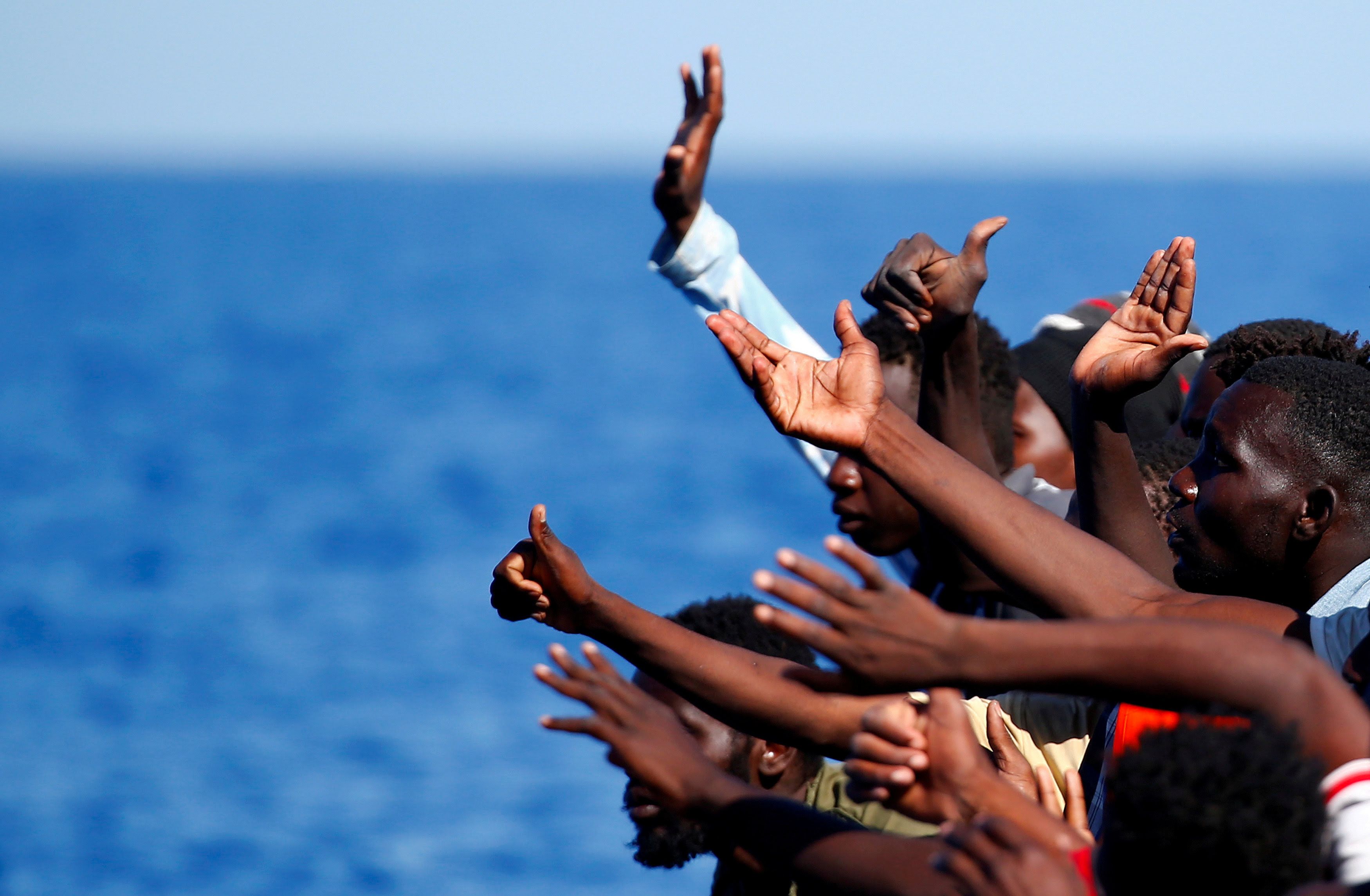August 17, 2018
Remember the Aquarius, a rescue boat carrying 630 migrants its crew had saved from the sea off North Africa that made headlines across Europe in June when Italy refused entry? In that instance, Spain’s newly elected government came to the rescue by opening a port and accepting the passengers. The story was a political winner at home for both Italy’s Interior Minister Salvini, who said no, and Spain’s new prime minister, Pedro Sánchez, who said yes.
This week, the Aquarius is back. This time, the ship run by humanitarian organizations Doctors Without Borders and SOS Méditerranée was carrying 141 migrants, including 67 unaccompanied children, rescued in international waters. Italy and Libya again refused entry, and this time Spain also said no. After a four-day standoff, Malta accepted the ship, but only after France, Germany, Luxembourg, Portugal and Spain agreed to accept a share of the 141 rescued passengers.The Aquarius, the only rescue ship now patrolling the waters off Libya, will be back. With Italy literally offering radio silence in response to requests for help, Spain will again be in the spotlight. Does Sánchez want Spain to become the haven that accepts the rescued migrants that other EU countries reject? If not, what happens to these people?
The bottom line: The search for an EU-wide burden-sharing solution continues. It’s both a moral dilemma and a serious political problem.
More For You
America’s new National Security Strategy confirms what Europeans have feared for months: Washington now sees a strong, unified European Union as a problem to be solved, not an ally to be supported.
Most Popular
Sponsored posts
The power of sports
What's Good Wednesdays
What’s Good Wednesdays™, December 10, 2025
Walmart sponsored posts
Walmart's $350 billion commitment to American jobs
In this episode of Tools and Weapons, Microsoft Vice Chair and President Brad Smith sits down with Ed Policy, President and CEO of the Green Bay Packers, to discuss how purpose-driven leadership and innovation are shaping the future of one of the world’s most iconic sports franchises. Ed shares how technology and community-focused initiatives, from Titletown Tech to health and safety innovations on the field, are transforming not just the game of football, but the economy and culture of Green Bay itself. He explains how combining strategic vision with investment in local startups is keeping talent in the Midwest and creating opportunities that extend far beyond Lambeau Field.
Subscribe and find new episodes monthly, wherever you listen to podcasts.
Members of security forces stand guard outside a polliong station, a week late in a special election, after the local governing party kept voting closed on election day, amid accusations of sabotage and fraud, in a presidential race still too close to call as counting continues, in San Antonio de Flores, Honduras, December 7, 2025.
REUTERS/Leonel Estrada
More than a week after Hondurans cast their ballots in a presidential election, the country is still stuck in a potentially-dangerous post-election fog.
© 2025 GZERO Media. All Rights Reserved | A Eurasia Group media company.
